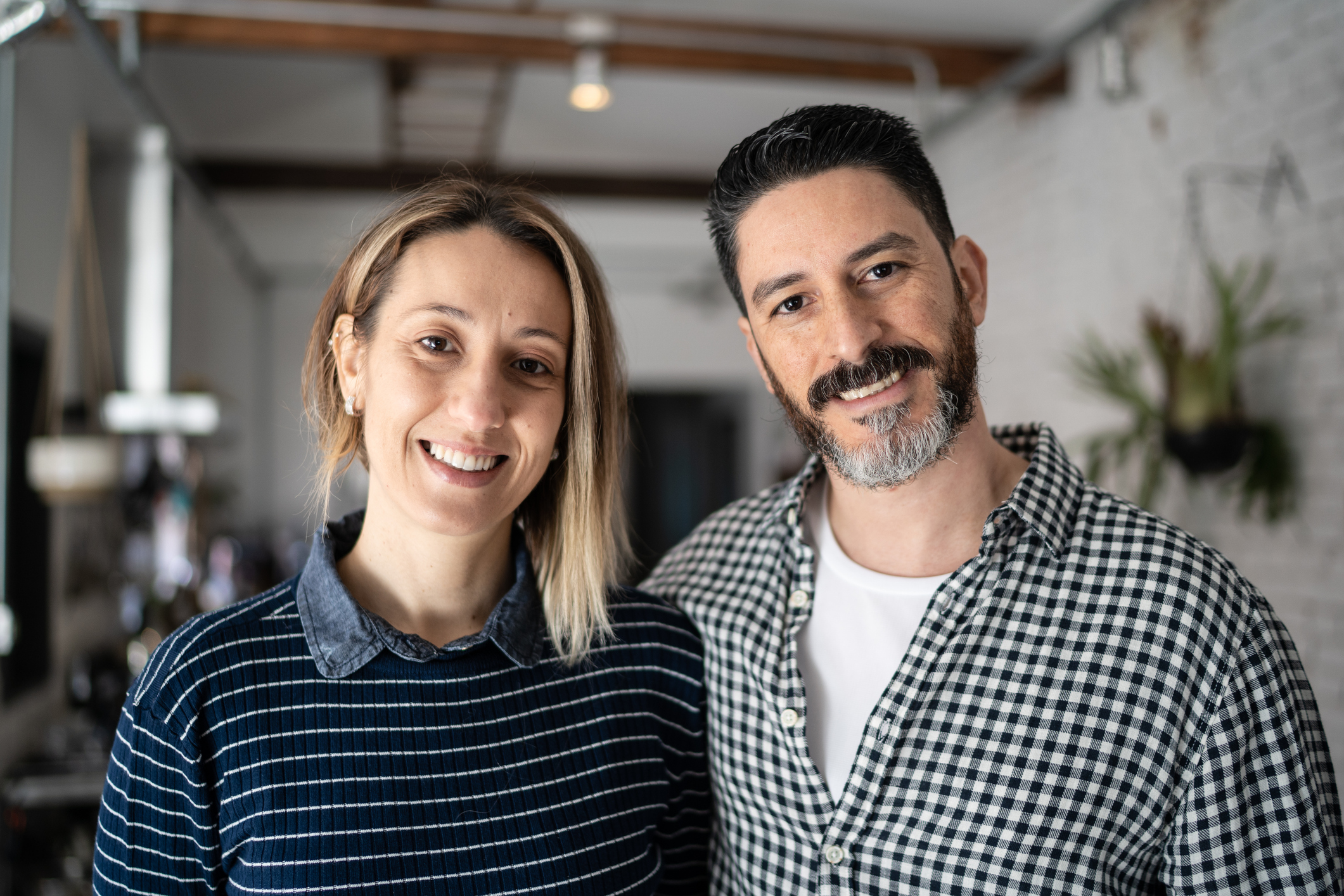Young & Scrappy -- And Saving for Retirement
No excuses. You don’t need a 401(k) or employer match to save.


Profit and prosper with the best of Kiplinger's advice on investing, taxes, retirement, personal finance and much more. Delivered daily. Enter your email in the box and click Sign Me Up.
You are now subscribed
Your newsletter sign-up was successful
Want to add more newsletters?

Delivered daily
Kiplinger Today
Profit and prosper with the best of Kiplinger's advice on investing, taxes, retirement, personal finance and much more delivered daily. Smart money moves start here.

Sent five days a week
Kiplinger A Step Ahead
Get practical help to make better financial decisions in your everyday life, from spending to savings on top deals.

Delivered daily
Kiplinger Closing Bell
Get today's biggest financial and investing headlines delivered to your inbox every day the U.S. stock market is open.

Sent twice a week
Kiplinger Adviser Intel
Financial pros across the country share best practices and fresh tactics to preserve and grow your wealth.

Delivered weekly
Kiplinger Tax Tips
Trim your federal and state tax bills with practical tax-planning and tax-cutting strategies.

Sent twice a week
Kiplinger Retirement Tips
Your twice-a-week guide to planning and enjoying a financially secure and richly rewarding retirement

Sent bimonthly.
Kiplinger Adviser Angle
Insights for advisers, wealth managers and other financial professionals.

Sent twice a week
Kiplinger Investing Weekly
Your twice-a-week roundup of promising stocks, funds, companies and industries you should consider, ones you should avoid, and why.

Sent weekly for six weeks
Kiplinger Invest for Retirement
Your step-by-step six-part series on how to invest for retirement, from devising a successful strategy to exactly which investments to choose.
Last spring, I packed my bags and headed to Denver for my first reporting job after college. We had everything you might expect at a scrappy media start-up with four reporters, including craft beer in the mini fridge. But like a lot of cash-strapped start-ups, the company couldn’t offer much in the way of employee benefits.
I didn’t care about any of that when I took the job. If I could pay the bills and start chipping away at my student loans, why the heck would I think about saving for retirement?
Here’s why: Our generation is almost certain to live longer than our parents, meaning our money has to last longer and clear more hurdles on the way.
From just $107.88 $24.99 for Kiplinger Personal Finance
Become a smarter, better informed investor. Subscribe from just $107.88 $24.99, plus get up to 4 Special Issues

Sign up for Kiplinger’s Free Newsletters
Profit and prosper with the best of expert advice on investing, taxes, retirement, personal finance and more - straight to your e-mail.
Profit and prosper with the best of expert advice - straight to your e-mail.
For starters, no one really knows what Social Security is going to look like in 30 or 40 years. No matter how Congress adjusts the system over the next decade, younger workers shouldn’t count on receiving the same benefits as their parents. “I tell younger investors to plan as if Social Security will be nonexistent when they retire,” says Ryan Fuchs, a certified financial planner in Little Rock, Ark. “I don’t believe that will be the case. But if they can create a successful plan without it, then any money they do receive will be icing on the cake.”
The time value of money. After paying rent and maybe student loans, finding the money to save for retirement might seem like an impossible task. In a 2017 survey from GOBankingRates, more than 60% of millennials reported having less than $1,000 in a savings account, and 46% of respondents ages 18 to 24 said they had nothing saved. But time is the most valuable resource you have, and you happen to have a lot of it right now.
“When we meet with younger clients, we’ll use simple calculations to show what saving a few hundred dollars a month can do for a portfolio when you extend that growth over 40 years,” says Nate Creviston, a CFP in Shaker Heights, Ohio. If you set aside $200 a month and earn an average annual return of 7%, you’ll have $480,000 after 40 years. Boost contributions every time you get a raise, and you’ll have much more than that. Eventually, you should aim to save 15% of income.
Putting aside the question of Social Security, the big difference in the retirement outlook between past generations and our own is the shift away from traditional pensions. Most private employers have moved toward defined contribution plans, such as 401(k)s, which allow workers to contribute a certain amount of their paycheck into a pretax account. According to Rui Yao, a personal finance professor at the University of Missouri, that shift began right before Generation X joined the workforce and culminated with millennials.
If your employer offers a 401(k) plan and will match your contributions up to a certain percentage of your pay, take it. It’s the closest you’ll come to getting free money. Even without the match, a 401(k) is a strong starting point as long as it offers a diversified selection of mutual funds that aren’t hobbled by exorbitant fees. (Brightscope.com offers a tool that will rank your 401(k) against its peers.)
If you’re self-employed or your employer doesn’t offer a 401(k), your next best bet may be a Roth IRA. In 2019, you can contribute up to $6,000 to a Roth, as long as your income is less than the IRS’s thresholds. The money isn’t tax-deductible, but as long as you wait until you’re at least 59½, all withdrawals—including earnings—will be tax-free, and you can withdraw contributions at any time without paying taxes or penalties. Many online brokers offer tools to help you create a portfolio and set up automatic monthly contributions, which makes it easier to start saving as a habit (see The Best Online Brokers).
As for me, I’m taking advantage of the Kiplinger 401(k) plan. I’m fortunate to have that option, but retirement isn’t just for the lucky ones. Start saving now, and work toward the future you want. You’ll thank yourself later.
Profit and prosper with the best of Kiplinger's advice on investing, taxes, retirement, personal finance and much more. Delivered daily. Enter your email in the box and click Sign Me Up.

-
 Dow Leads in Mixed Session on Amgen Earnings: Stock Market Today
Dow Leads in Mixed Session on Amgen Earnings: Stock Market TodayThe rest of Wall Street struggled as Advanced Micro Devices earnings caused a chip-stock sell-off.
-
 How to Watch the 2026 Winter Olympics Without Overpaying
How to Watch the 2026 Winter Olympics Without OverpayingHere’s how to stream the 2026 Winter Olympics live, including low-cost viewing options, Peacock access and ways to catch your favorite athletes and events from anywhere.
-
 Here’s How to Stream the Super Bowl for Less
Here’s How to Stream the Super Bowl for LessWe'll show you the least expensive ways to stream football's biggest event.
-
 About 40% of Heirs Say They Can’t Afford an Inherited Home
About 40% of Heirs Say They Can’t Afford an Inherited HomeEstate Planning The ‘Great Wealth Transfer’ may not help with high property taxes, soaring homeownership costs, and liquidity issues in 2025.
-
 When Renting Is Smarter Than Buying
When Renting Is Smarter Than Buyingreal estate There are some situations when renting is smarter than buying. You're not necessarily throwing your money away when you rent.
-
 How Do You Pay off Credit Card Debt?
How Do You Pay off Credit Card Debt?Making Your Money Last Pay off credit card debt with these tried-and-true strategies.
-
 Bear Market Strategy for Millennial Investors
Bear Market Strategy for Millennial InvestorsA focused, goal-oriented approach to investing can help millennials navigate a bear market.
-
 Rent vs. Buy: Sometimes Renting is Better
Rent vs. Buy: Sometimes Renting is BetterPersonal finance experts have long held that homeownership is a key step to building lasting wealth. How does that hold up in a pricey real estate market?
-
 How Our Family Fights Inflation
How Our Family Fights InflationBudgeting Millennials typically spend more than other generations on certain expenses that have been increasing most rapidly. Here are some tips to cut your losses.
-
 Make a Plan for Your Parents' Care
Make a Plan for Your Parents' CareCaregiving The ideal time to begin talking with your parents is before they need care.
-
 Strategies for Working Remotely
Strategies for Working RemotelyBusiness Travel Globe-trotters should keep in mind that every country has different rules when it comes to working within their borders.